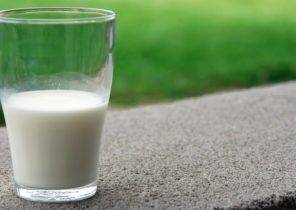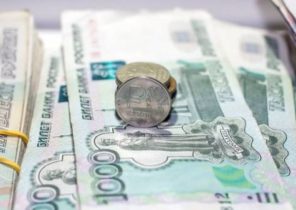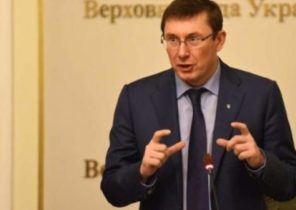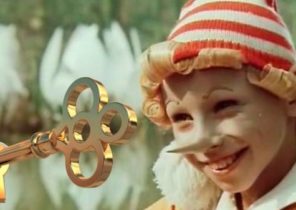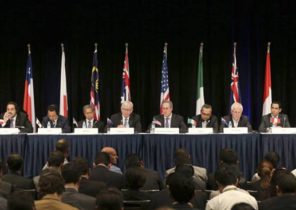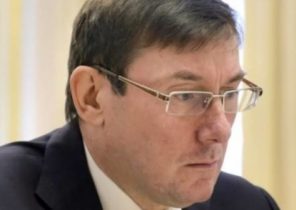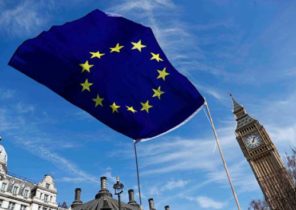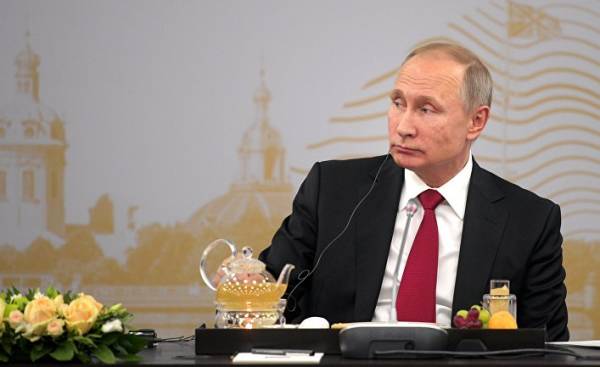
The St. Petersburg economic forum (held June 1-3) is the only one of its kind high-profile event, during which the Russian business elite are hiding concerns and worries behind a mask of loyalty, and lobbying reforms is mixed with entertainment. Officials even give a bit of freedom to openly Express disagreement and discontent.
But the highlight of the program is undoubtedly considered to be the speech of Russian President Vladimir Putin and his traditional jokes about economic priorities. Potential foreign investors are usually prepared whole portfolios of memoranda of understanding: they are not binding, but give the organizers the opportunity to demonstrate that the annual show is hiding something significant. The Russian oligarchs are now not often visited Davos and partying in Courchevel, so meeting in St. Petersburg was a great opportunity for journalists to feel the mood of this exclusive crowd.
Putin arrived in his hometown after a short stay in Paris, where he hopes to strengthen ties with the new French President Emmanuel Macron collapsed after the comments of the Macron on the Russian propaganda. Irritation Putin has clearly read one of his remarks: “I do not belong to the European leaders. In any case, they do not think so”.
Megyn Kelly and NBC News, who moderated a key session with the head of the Russian state seriously failed to hook Putin sharp questions about Russia’s intervention in the US presidential election in 2016. The master of the Kremlin denied the allegations in a rather rude manner, even assuming that the hackers might have left a trail that would lead to a three year old daughter Kelly who has access to the computer, but poorly versed in cyber security. Putin refused any criticism of the US President Donald trump for withdrawal from the Paris agreement on climate, he even appealed to American businessmen with an appeal to help restore “normal political dialogue”.
The economic situation in the country, apparently, not particularly worried about Putin. His desire to outstrip global growth in 2020 sounds rather boldly, given the real state of the Russian economy, increased only 0.3-0.4% in the first quarter of 2017. Moreover, according to Finance Minister Anton siluanova, this modest growth was achieved “by eating up reserves”.
Ex-Finance Minister Alexei Kudrin presented the breeding program of the Russian Federation of its current stagnation by reducing state control over the oil and gas sector and the redirection of resources to high-tech industry and education. Putin, apparently, is enthusiastic with the introduction of digital technology. Although the priority goal has always remained the “information security”, including regulation of the Internet. A sober assessment Kudrin about the “lost decade” in Russia’s modernization, Putin can throw a few ideas, but the response to the main proposal for the reduction of control is a firm “no”. The business elite are increasingly dissatisfied with the decrease in profit, but their desire to improve relations with the West is not yet a serious signal to the Kremlin to compromise.
This year the honorary guest of the forum Putin became Prime Minister of India Narendra modi. However, he came to attract Russian investments in the economy of their country, not Vice versa. China sent a small delegation to the low level, thereby demonstrating that St. Petersburg is not included in the priority areas of the initiative “One belt, one road”. The lack of interest has also been given the frustration of Chinese business unfriendly and unstable investment climate in Russia.
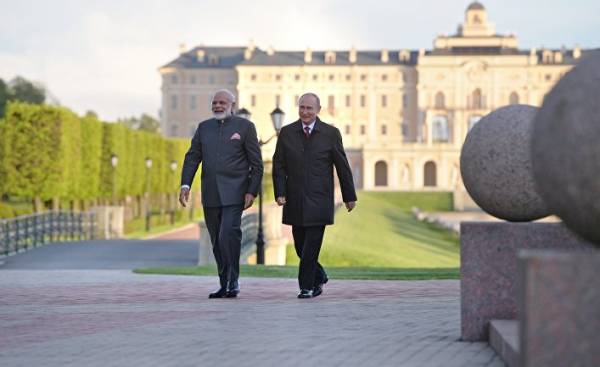 © RIA Novosti, Alexei Druzhinin | go to Photobacterium of the Russian Federation Vladimir Putin and Prime Minister Narendra modi
© RIA Novosti, Alexei Druzhinin | go to Photobacterium of the Russian Federation Vladimir Putin and Prime Minister Narendra modi
German Gref, President of Sberbank and a veteran team of economists Putin, claimed that the first reform must affect the judicial and law enforcement systems in Russia. According to Gref, these reforms are necessary to ensure the best protection of property rights and reducing government regulation. Absolute submission of the Russian courts political expediency is perfectly illustrated by the sentence against the opposition leader and corruption fighter Alexei Navalny in a libel case filed by Alisher Usmanov, one of the main oligarchs of the country.
Navalny dared to refuse to obey the court order and tried to attract tens of thousands of people to his new protests. It is unlikely Usmanov satisfied public attention to his relations with Prime Minister Dmitry Medvedev, who failed to detect due to the anti-corruption investigation of the Bulk. But his willingness to serve as a target for public discontent, the Russian billionaire was able to demonstrate his loyalty to Putin. New investigations and the facts about corruption only increase the anxiety of the different groups of Putin’s elite about the fragility of supposedly monumental political structure. Putin actually trapped at the intersection of “inner circles” of native mode. He can’t deviate from his script, gradually grabbing more and more power.
Another Putin’s presidential term does not necessarily mean that the regime will be able to avoid painful internal transition. The facade of stability, presented at the St. Petersburg economic forum, could not fully hide the inability of the Kremlin to develop a policy that focuses on economic growth. Failed to disguise the clan struggle over diminishing cash flows in Russia.
Professionals from the government understand the incompatibility between the consolidation regime and economic modernization. Moreover, they can’t help but notice the negative impact on their own career permanent state of stagnation in the country. The oligarchs are afraid that their “quiet harbors” in the West could threaten the investigation of money laundering, they are afraid to be the scapegoat for the Kremlin. The mood in society rather dull, and Putin probably knows by experience that the passive acquiescence to inequality and injustice can end unexpectedly.

